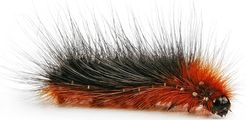On the path to a circular textile economy
The presentation brought together the final results of the collaborative research project DiTex. The project tested the feasibility of a circular textile economy in the business-to-business (B2B) segment. In a cooperative product design process three specific textiles have been developed. These textiles have been used in field tests. They have been evaluated according to ecological and technical aspects and their acceptance has been analysed. Project goals, approach and methods as well as results were presented in the lecture.
The three product designs developed largely meet the requirements for leasing textiles. The highest savings in terms of water and land consumption were achieved by substituting cotton with alternative materials. Other measures employed yielded smaller ecological benefits. From the overview eco-balances, adjusting screws and recommendations for action for science, practice and politics were derived: These include pricing in externalized costs (CO2) as well as calling on major buyers to use their buying power to shape the textile market.



